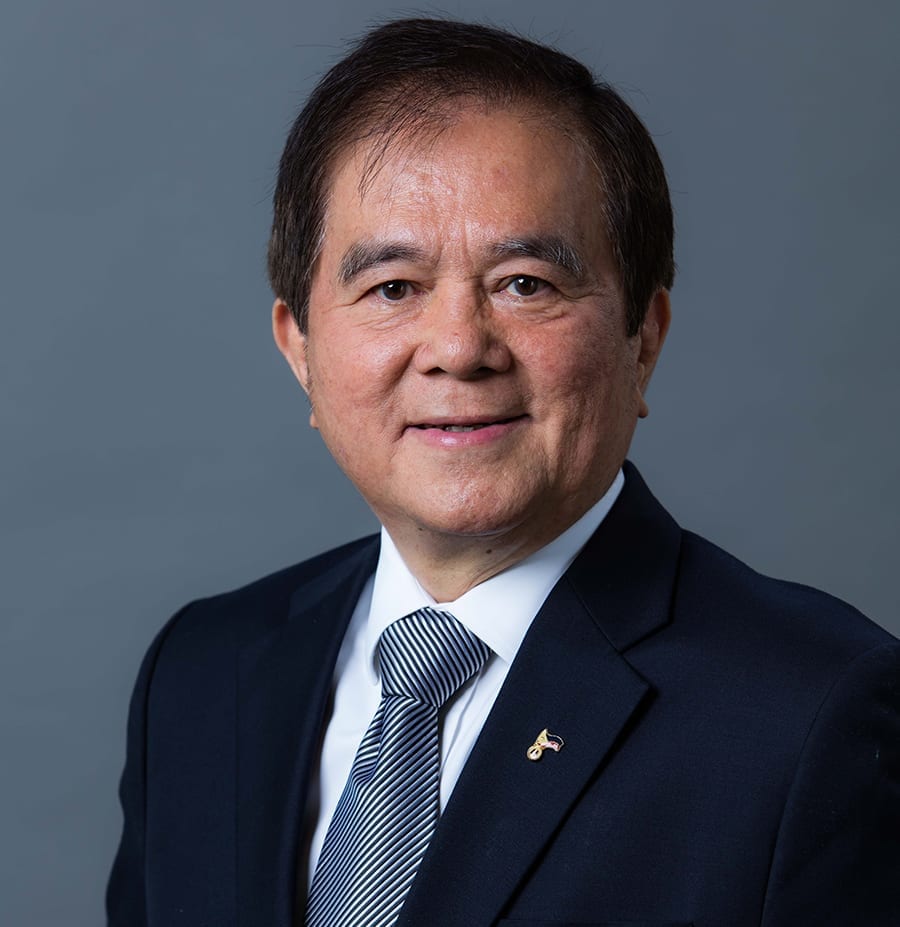
Samie Lim is the Co-Founder and Chairman Emeritus of the Philippine Franchising Association (PFA) and the Philippine Retailers Association (PRA). He is also Chairman of Francorp Philippines and U-Franchise, the largest franchise consulting company and franchise brokerage company respectively in the Philippines.
Q1: What common traits should franchisors look for in leaders within their franchisee’s organizations and why? What are no no’s?
A1: Leaders of a franchisee’s organization need a good balance of entrepreneurial ability and a willingness to listen and follow best practices. Strong franchises are built on franchisees who are able to execute best practices while adapting to their local contexts. Franchisee leaders cannot just rely on the franchisor or their team to do everything for them, they need to be the ones leading from the frontline, motivating and monitoring their team.
As strong leaders and entrepreneurs, franchisee leaders tend to have a lot of new ideas and innovations, and it is critical that they have a strong relationship with the franchisors so these ideas can be evaluated and discussed. In fact, one of the biggest innovations of McDonald’s, the Fillet-o-Fish was developed by a franchisee.
A big no-no is for franchisees to implement major changes in the products or systems without having proper discussions with the franchisor as this leads to inconsistencies in the brand experience for consumers thus affecting the brand as a whole.
Q2: What would be the ideal minimum time a franchisee should spend in their franchise before sales and profit starts to deteriorate? Can you share the top 5 key tasks they should do routinely as good business practice?
A2: Although franchising has a 90% success rate, it is still critical that franchisees spend time managing the business. This does not mean being in the store ever single day, but being present to take charge of key aspects of the business. Depending on the size of scale of the business, franchisees can spend a few hours a day to a few hours a week on the business. Key tasks they need to do are to:
o Set targets and evaluate the financial performance monthly
o Regularly visit the stores to do quality & procedural audits
o Speak to customers to get first hand insights & observations about the business
o Hire and motivate the right team to run the business
o Regularly discuss with franchisors & fellow franchisees on new best practices
Q3: Some franchisors, like the Potato Corner, are starting to allow employees or busy individuals to be franchisees but management remains with the franchisor. Will you see more franchisees like this? Why or why not?
A3: Franchising is about using other people’s money, time and networks and this has been the success formula of franchising over the past 20 years. As franchising has matured in the Philippines, there have been a combination of innovative franchise management practices.
• For organizations that lack capital but have an abundance of talent, franchising can be used to gain scale using other people’s funds to build new stores and set up presence in new markets while franchisors retain management control.
• But for most large organizations, the key resource they lack is not capital, but hiring the right people. This is where franchising has a large advantage, as franchisors get access to owners who manage their stores, instead of salaried managers. So a lot of brands such as petrol stations and convenience stores have adopted Company Owned-Dealer Operated (CODO) models where franchisors invest in capital, but franchisees operate the stores. This gives exponential scale as it allows anyone, no matter what capital level they have, to be a franchisee as long as they exhibit strong leadership and management potential.
Q4: For amateur or new franchisors, what are some of the most often neglected parts of a franchise contract and why are these important?
A4: When getting into a business, entrepreneurs tend to be quite optimistic so rightly focus on establishing and growing the business. Because of this optimism, they often neglect an important part of the contract, namely the termination, renewal & relocation clauses. Strong franchise agreements should not only define the obligations of the franchisees & franchisors, but also the right processes and procedures in case the business does not do as well as initially planned. Franchises can close because of many factors – from changes in the competitive landscape, changes in the foot traffic of the location or changes in the circumstances of the franchisees – so franchisees should know the correct remedies for these situations to avoid misunderstanding down the road.
Q5: What do you think will be the effect of ease of doing online business on franchising?
A5: Although online platform will continue to rapidly grow, the trend globally is to have a hybrid of offline and online presence to maximize the business opportunities. Traditional brick and mortar franchisors have already started utilizing online channels to improve their reach.
• What’s more interesting though is that we see online businesses tapping the power of franchising to create an offline store network. With brands such as Amazon & Zalora experimenting with brick and mortar stores, it’s only a matter of time for online retailers to realize that offline retailing can be done better & faster using other people’s money, time and networks. Franchising would allow online players to focus on their core competence in brand and product development, while their franchisees focus on store operational excellence that give the brand a good offline footprint.
Q6: You and your colleagues are currently planning for the annual Franchise Asia Conference on Mar 27 to 28 and Franchise Asia Expo on March 29 to 31 in SMX MOA, what new things can people expect this year?
A6: This year’s Franchise Asia will be the biggest one we’ve ever staged. Because of the tremendous success of the Franchise Food Park & Innovation Hub, we’ve increased the exhibit area by over 22% in the 2nd floor. This will allow attendees to see and experience more of the newest and freshest food franchise concepts. To keep the expo exciting, over 35% of the exhibitors will be new exhibitors & concepts. And to make it easier for people to attend, this year’s Expo was moved to March 29 to 31 instead of July so that more favorable weather conditions would allow more people from around the Philippines and from other countries to visit Asia’s largest franchise expo.
As for the International Franchise Conference (Mar 27 & 28), delegates can expect to hear from over 50 world-class international and local experts from Potato Corner, 7-11, McDonald’s Jollibee, Happy Skin, Sunnies Studios, SM, Kantar World Group and more. More importantly, with over 1,000 delegates in the conference, participants can also learn from their colleagues in the industry in unique round table discussion formats where 10 to 12 delegates discuss and share best practices on specific business topics and issues.

